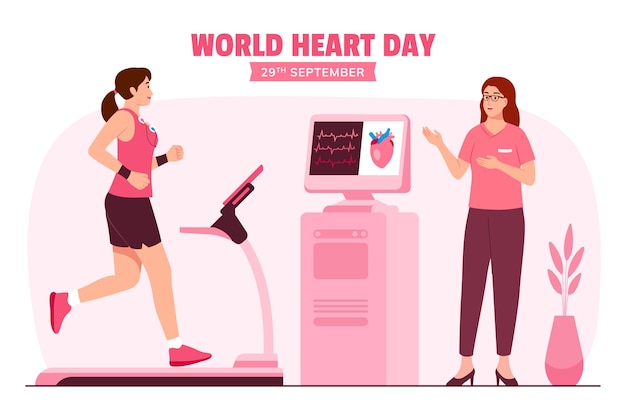21 Common Mistakes Throwing Off Your Hormones (And How Students Can Fix Them)
Hormones control nearly every function in your body—from mood and energy to sleep and metabolism. For students juggling academics, social life, and personal growth, hormonal imbalances can silently sabotage focus, weight, skin, and emotional well-being. The good news? Many of these imbalances stem from everyday habits that are easy to fix once you know what to look for.
This guide reveals 21 common mistakes students make that disrupt hormonal balance, backed by science, along with weekly targets, safety tips, and myth-busting facts.
Myths vs. Facts: Know the Truth
- Myth: Hormone issues only affect women.
- Fact: Both men and women experience hormonal fluctuations. Testosterone, cortisol, insulin, and thyroid hormones impact everyone.
- Myth: Hormonal imbalance is rare in young people.
- Fact: Stress, poor sleep, and diet can disrupt hormones at any age—especially during student years.
- Myth: You need medication to fix hormones.
- Fact: Lifestyle changes often restore balance naturally—especially when caught early.
21 Mistakes Sabotaging Hormonal Balance
- Skipping breakfast regularly – This can spike cortisol and insulin, disrupting metabolism. Weekly target: Eat within 90 minutes of waking, 3x this week.
- Consuming too much sugar – High sugar intake spikes insulin and lowers leptin sensitivity. Tip: Swap soda for infused water.
- Irregular sleep schedule – Messes with melatonin and cortisol. Target: Set a bedtime alarm 3 nights this week.
- All-nighters – Suppress growth hormone and increase stress hormones. Safety: Avoid caffeine after 2 PM.
- Sedentary lifestyle – Low activity reduces insulin sensitivity. Target: 10-minute walk daily.
- Over-exercising – Can elevate cortisol and lower sex hormones. Balance: Mix cardio with rest days.
- Chronic stress – Constant stress = high cortisol = weight gain, fatigue. Tip: Try 5-minute breathing exercises.
- Low protein intake – Needed for hormone production. Target: Include protein in every meal.
- Not drinking enough water – Dehydration stresses the body. Goal: 6–8 glasses daily.
- Excessive screen time at night – Blue light blocks melatonin. Fix: Use night mode after 8 PM.
- Eating ultra-processed foods – Loaded with additives that disrupt endocrine function. Swap: Choose whole grains over chips.
- Ignoring gut health – 70% of your immune system and much of hormone regulation happens in the gut. Tip: Eat fermented foods like yogurt.
- Overusing energy drinks – High in sugar and caffeine, spiking cortisol and insulin. Safer choice: Green tea.
- Smoking or vaping – Alters estrogen and testosterone levels. Safety: Seek campus support if needed.
- Alcohol consumption – Impacts liver function and sex hormones. Target: Limit to 1 drink/week.
- Poor posture during study – Can compress glands and affect circulation. Tip: Use ergonomic seating.
- Ignoring menstrual cycle patterns (if applicable) – Tracking helps identify imbalances early. Tool: Use a free period tracker app.
- Low healthy fat intake – Fats are building blocks for hormones. Add: Avocados, nuts, olive oil.
- Over-reliance on birth control without monitoring – Can mask symptoms. Fact: Discuss long-term effects with a healthcare provider.
- Isolating socially – Loneliness increases cortisol. Target: Connect with one friend daily.
- Ignoring symptoms – Fatigue, acne, mood swings, and weight changes are signals. Action: Journal symptoms weekly.
Weekly Hormone-Boosting Targets
- Drink water first thing every morning (7/7 days)
- Get 7–8 hours of sleep (5 nights minimum)
- Eat a balanced meal within 90 minutes of waking (5x)
- Take a 10-minute walk daily
- Practice a mindfulness technique (e.g., box breathing) 3x
- Limit screen time 1 hour before bed (4 nights)
- Include healthy fats in 2 meals daily
Safety Reminders
- Never self-prescribe supplements—some can worsen imbalances.
- Consult a healthcare provider before making drastic diet or exercise changes.
- If experiencing severe fatigue, unexplained weight changes, or mood swings, seek professional advice.
- Avoid extreme diets—these often backfire by increasing cortisol.
- Be cautious with 'detox' teas or cleanses—they can disrupt electrolyte balance.
Final Thoughts
Balancing hormones isn’t about perfection—it’s about consistent, mindful choices. As a student, small daily habits compound into long-term health. Start with one or two changes from this list, track how you feel, and build from there. Your hormones—and your future self—will thank you.















